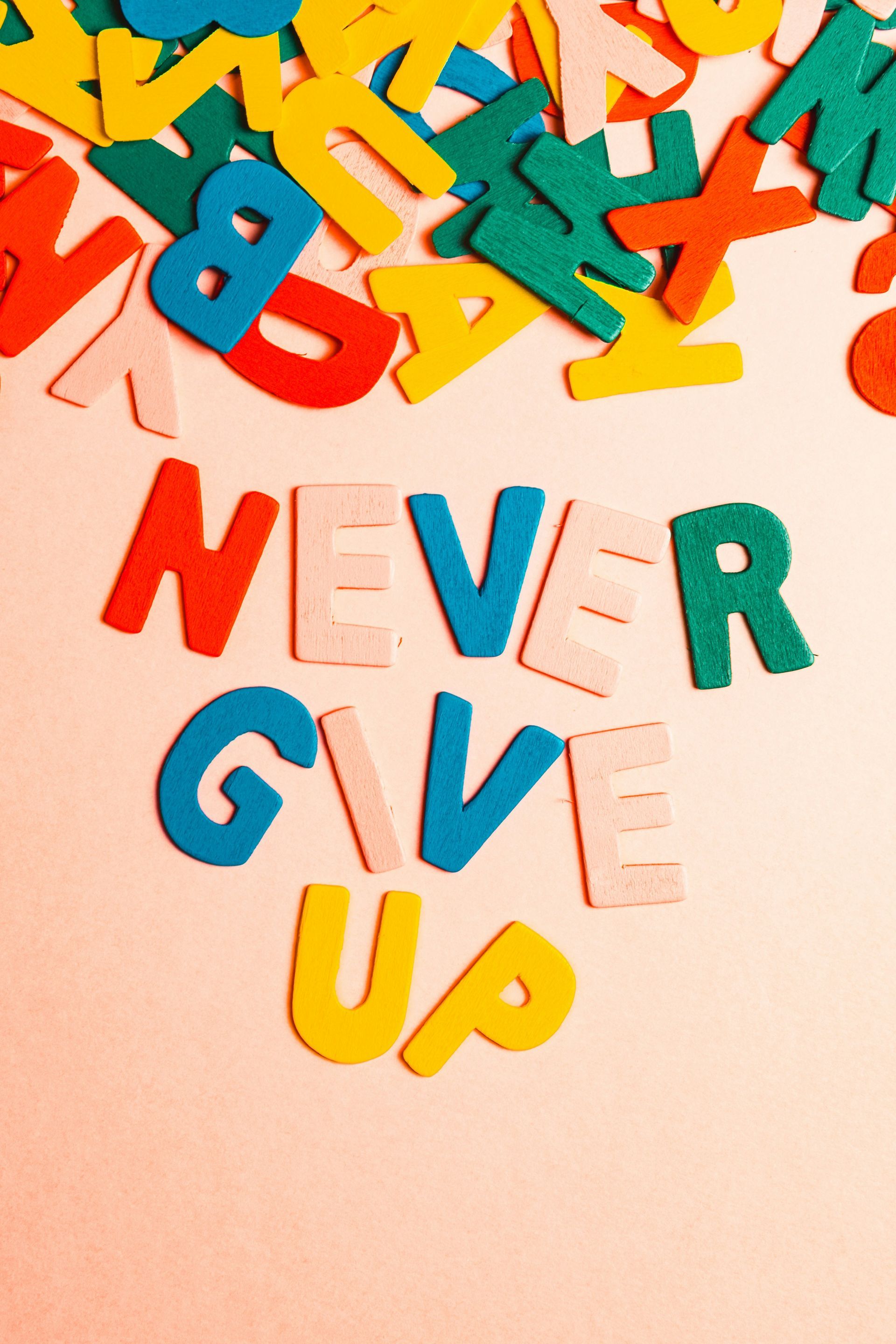
“Will-power and desire, when properly combined, make an irresistible pair. Those who accumulate great fortunes are generally known as cold-blooded and sometimes ruthless. Often, they are misunderstood. What they have is willpower, which they mix with persistence, and pace back of their desires to ensure the attainment of their objectives.
Henry Ford has been generally misunderstood to be ruthless and cold-blooded. The misconception grew out of Ford’s habit of following through in all of his plans with PERSISTENCE.
The majority of people are ready to their their aims and purposes overboard, and give up at the first sign of opposition until they attain their goal. These few are the Fords, Carnegies, Rockefellers and Edisons.
There may be no heroic connotation to the word “persistance,” but the quality is to the character of man what carbon is to steel.
The building of a fortune generally involve the application of the entire thirteen factors of his philosophy. These principles must be understood, they must be applied with
PERSISTENCE
by all who accumulate money.”
These are the first five paragraphs in the chapter called Persistence in Napoleon Hill’s famous book, Think and Grow Rich. Persistence isn’t just about sticking with something until it’s done—it’s about growing into the person you’re meant to be. People like Henry Ford and Thomas Edison weren’t ruthless or cold-hearted, as some believed. Their persistence set them apart—the ability to keep going even when things were tough.
In Think and Grow Rich, Napoleon Hill explains that persistence separates those who achieve great things from those who give up. Most of us quit at the first sign of difficulty, but those who succeed continue. Persistence might not sound exciting, but it’s like the carbon in steel—it makes us stronger, more resilient, and ready to face challenges head-on.
Hill also reminds us that success doesn’t just happen. It takes a clear goal, determination, and the willingness to try again after setbacks.
Think about it: every time you face a challenge and choose to keep going, you’re not just changing your life.
You’re showing your kids what’s possible when you believe in yourself and never give up.
Meaning of Persistence
Persistence is sticking to something even when it’s hard. It’s about not giving up, no matter how often you fall or fail. Hill said it best: “The majority of people are ready to throw their aims and purposes overboard and give up at the first sign of opposition or misfortune. A few carry on despite all opposition until they attain their goal.”
Why is persistence so important? Achieving goals is important, but
the real value lies in the person you become. Every time you push through challenges, you build confidence, pick up new skills, and grow your belief in yourself.
8 Key Factors to Develop Persistence

Persistence is a mindset, which means it’s something you can grow and strengthen. Like any other state of mind, it relies on specific foundations. Here are the key factors that help develop persistence from the chapter:
- A Clear Purpose
Knowing what you want gives you a reason to keep going, even when things get complicated. It’s like having a compass to guide you through tough times. - A Strong Desire
When you want something, you’ll have the energy to push forward. Desire fuels the determination to keep trying, no matter what. - Belief in Yourself
Confidence in your ability to succeed makes it easier to stay the course. When you trust yourself, giving up doesn’t feel like an option. - A Solid Plan
Having a step-by-step plan keeps you on track. Knowing what to do next makes it easier to keep moving forward. - The Right Knowledge
Acting on facts instead of guesses helps you avoid unnecessary mistakes. The more you know, the more confident and persistent you’ll be. - Supportive People
Surrounding yourself with people who cheer you on makes a big difference. A strong support system can keep you motivated when the going gets tough. - Willpower
Staying focused and disciplined, even when distractions arise, is key. Willpower helps you overcome the difficult parts. - Good Habits
Persistence becomes more manageable when it’s part of your daily routine. Building good habits trains your mind to keep going without overthinking it.
The 16 Symptoms of a Lack of Persistence

Let’s talk about what holds most of us back from reaching our goals. Here are 16 signs that show a lack of persistence and the deeper reasons behind them. Be honest with yourself about this list. If you want to find out what you’re capable of and go after what you want, these are the challenges you’ll need to work on.
1.Lack of Clear Goals
It’s easy to give up if you're unsure of your goals.
Goals give you direction and purpose.
2. Procrastination
Putting things off until tomorrow often means they don’t get done. Action is key to progress. As Nike says, “Just Do It!”
3. Fear of Criticism
Worrying about what others think can stop you from trying.
Confidence grows when you focus on your path.
4. Indecision
Hesitating too long to make choices can cause missed opportunities.
Decisiveness builds momentum.
5. Relying on Excuses
Making excuses holds you back.
Taking responsibility for your actions leads to growth.
6. Lack of Discipline
Without self-control, it’s easy to stray from your goals.
Discipline helps you stay on track.
7. Weak Desires
If you don’t honestly want something, you won’t work hard for it.
Strong desires fuel persistence.
8. Giving Up Too Soon
Quitting at the first sign of trouble means you never see what’s possible.
Pushing through challenges builds resilience.

9. Lack of Effort
Success takes hard work. Period! Half-hearted attempts rarely lead to lasting results.
10. Not Learning from Mistakes
Repeating the same errors shows a lack of growth. Mistakes are opportunities to improve. As the saying goes,
"Doing the same thing over and over again and expecting a different result is the definition of insanity."
11. Fear of Failure
Being afraid to fail can prevent you from starting. However,
failure is simply a stepping stone on the journey to success.
12. Unwillingness to Change
Sticking to what’s comfortable prevents progress.
Growth requires trying new things.
13. Poor Planning
Without a clear plan, it’s easy to feel lost.
Planning gives you a roadmap to follow.
I use an acronym, O.P.E. “O” stands for organize. I get whatever I need to in an orderly fashion, such as files, data or whatever.
“P” stands for Plan. Then, I go over what I have organized and make a plan.
“E” is Execute.
Put my plan into action.
14. Blaming Others
Shifting responsibility to others keeps you stuck.
Taking ownership of your journey empowers you.
15. Lack of Enthusiasm
Without excitement for your goals, persistence fades. Passion helps you keep going.
16. Not Surrounding Yourself with Support
Going it alone can be challenging.
Having a team of cheerleaders keeps you motivated and accountable.
Overcoming the Fear of Criticism: A Barrier to Persistence

In the chapter, Napoleon Hill highlights the fear of criticism as one of the biggest obstacles to developing persistence. This fear, rooted in a worry about what others think, can hold you back from pursuing your dreams. It creates self-doubt and hesitation, leading to inaction. For many, the opinions of others feel like a wall that’s too high to climb.
As parents, we need to understand how this fear impacts not just ourselves but our children. Kids watch us closely—they see how we handle setbacks, discuss our goals, and even respond to criticism. If we let the fear of criticism stop us, we unintentionally teach our kids to do the same.
Breaking free from this fear begins with building self-esteem, self-confidence, and self-worth. These qualities give you the strength to trust your judgment and stay committed to your goals, regardless of outside opinions. When you model this resilience, you show your children they can stand up to criticism.
Here’s how to start:
- Set clear boundaries. Let others know you value their opinions, but don’t give them the final say in your decisions.
- Practice assertive communication: Speak up for your needs and goals, even if it feels uncomfortable.
- Celebrate small wins: Each step forward builds confidence and helps you ignore negativity.
Remember, overcoming the fear of criticism doesn’t just help you—it empowers your children to believe in themselves. You’re teaching them that their dreams matter and that persistence is stronger than any fear.
What do you think? Have you noticed the fear of criticism holding you or your kids back? Share your thoughts in the comments!
4 Ways to Develop Persistence

Building persistence takes practice, but the good news is that anyone can develop this critical skill. Hill outlines four essential steps to help you strengthen your persistence. Let’s break them down:
- Set a Clear Goal
Persistence starts with knowing exactly what you want. Write down your goal in a way that inspires you, and keep it somewhere you’ll see it daily. When your goal is clear, staying focused and motivated is easier. - Create a Strong Plan
A good plan is like a roadmap—it guides you step by step. Break your goal into smaller, manageable tasks, and tackle them one at a time. Celebrate each win along the way to keep your momentum going. - Build a Positive Mindset
Surround yourself with encouraging people who believe in you. Replace negative thoughts with positive affirmations, and remind yourself why your goal matters. A positive mindset fuels determination. - Be Ready to Adapt
Life doesn’t always go as planned, and that’s okay. If something isn’t working, adjust your approach. Flexibility helps you overcome obstacles and keep moving forward.
Conclusion - The Power of Persistence: A Legacy Worth Leaving

In The Last Great Prophet section, Napoleon Hill ends the chapter on persistence with a powerful reminder. He explains that persistence is more than a personal trait—it’s a legacy. Those who embrace persistence inspire others and leave a lasting impact on the world. Hill draws on the example of great leaders who refused to give up, no matter their challenges. Their determination changed not only their own lives but also the lives of countless others.
As parents, you have the unique opportunity to be this kind of leader for your children. Every time you face a challenge with courage and determination, you’re not just persevering for yourself—you’re shaping how your children will face their obstacles. They see your resilience, commitment, and belief in yourself, and they learn to embody those same traits.
Persistence isn’t just about achieving goals. It’s about becoming the person who refuses to give up, no matter what. That’s the legacy you can leave for your kids—a foundation of self-esteem, self-confidence, and self-worth built on the power of persistence.
What steps will you take today to show your children the importance of persistence? Share your ideas in the comments.
"Remember, change begins with ourselves.
Put your knowledge into action and reach your full potential ."
Wishing you heartfelt warmth
and support on your parenting journey!
Cathy
Wish Setting Boundaries Was Easier?
Grab your FREE 7-day guide and create boundaries that bring you peace and balance!
All Rights Reserved | Cathy Barker
Site Designed and Developed by Client First Web Design & Graphics
